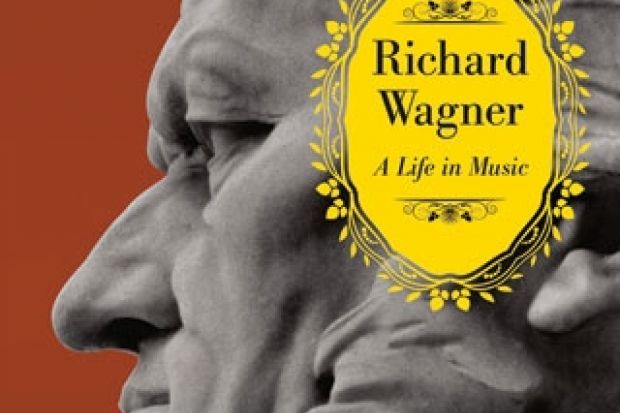Martin Geck, who earned his musicological spurs with the Wagner work catalogue and the critical edition of Parsifal, returns to the composer on the occasion of Richard Wagner’s bicentenary with a book that distances itself decisively from a source-based approach (despite amply using Wagner’s autobiography Mein Leben and his wife Cosima’s diaries throughout). Instead he has turned to, as the introduction asks: “Figuring out Wagner?” Or rather, even more than explaining the composer’s creative personality, Geck wants to figure out “myself and my age. What is it that continues to fascinate us…? Which values are subliminally brought home to us through his world of music theater?”
Thus, the emphasis is squarely on the music rather than the life (Geck seems, like Wagner, in two minds to what extent the two are or need to be related) and the book is not a straightforward biography despite its broadly chronological design. The reader has to know Wagner’s eventful life fairly well, since biographical details are brought in only when they shed light on individual works. There is much to commend in this strategy, as it allows Geck to range freely across the composer’s life, ideas and reception. Thus Wagner’s theories about singer-actors are discussed first in the chapter dealing with Rienzi, rather than in the context of the Zurich writings or the Bayreuth Festival, and the issue of National Socialist appropriation is raised with Lohengrin, segueing neatly into a chapter on Wagner’s revolutionary politics. Like the chapter about the early operas that identifies core themes (love equals tragedy, and redemption comes through destruction), many observations about the more canonical works gain from this unorthodox approach, often referencing modern productions.
Most of the chapters are followed by a section titled “A word about”: biographical vignettes of contemporaries and latter-day Wagnerians, some only tangentially related to the preceding chapter. All 13 men share a Jewish background, which affords Geck repeated opportunities to tackle Wagner’s anti-Semitism, a theme also sprinkled throughout the book. Thus he does not exactly dodge this awkward question, but neither does he face it in a particularly thorough way.
A free-ranging chorus of European intellectuals contributes prominently to the discussion of the works. Geck bounces the operas against quotations from old acquaintances (Nietzsche, Mann) as well as more personal and bewildering choices (Proust, Peter Härtling, Heidegger, Luther), including an extravagant claim that a dream-tale recounted by Schubert “reveals astonishing similarities” to the subject of Parsifal. More systematic exegeses by philosophers or literary scholars are summarised but then dismissed because of their one-dimensional approach. At this point, Geck usually places the burden on the music to convey the messages of the dramas, cheerfully admitting their inconsistency or ambiguity, but confident in music’s power to create coherence and sense. Enter the Romantic commonplace about music as the language of the ineffable, when Geck should instead get down to the business of explaining how exactly the orchestral fabric of, for example, Wotan’s monologue bridges the chronological gap between Das Rheingold and Die Walküre.
For the benefit of the “general reader” addressed in several places, music examples are largely restricted to cursory readings of loci classici. There are some rewarding exceptions when Geck turns at greater length to less obvious passages, without defecting to a handy quote by Walter Benjamin or Julia Kristeva. Geck is of course faced with the topical problem of how music should be written about without getting forbiddingly technical. But is the solution really to make soothing noises towards the intuitive understanding of the “general reader”? In the conclusion, he criticises those Wagnerian audiences who “refuse to engage with the ethical conflicts…but enjoy the aesthetic solution that is suggested by the music”. “What if”, he asks, we “were to examine the music from an intellectual standpoint?” What if, indeed! Once more a seasoned specialist has thrown down that particular gauntlet, ignoring that the joust has been going on for the past 150 years.
Richard Wagner: A Life in Music
By Martin Geck
Translated by Stewart Spencer
University of Chicago Press, 464pp, £24.50
ISBN 9780226924618 and 24625 (e-book)
Published 28 October 2013
Register to continue
Why register?
- Registration is free and only takes a moment
- Once registered, you can read 3 articles a month
- Sign up for our newsletter
Subscribe
Or subscribe for unlimited access to:
- Unlimited access to news, views, insights & reviews
- Digital editions
- Digital access to THE’s university and college rankings analysis
Already registered or a current subscriber? Login




